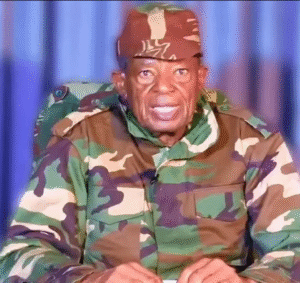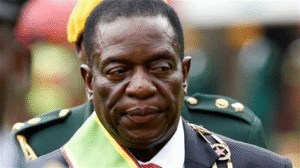POLITICAL TURMOIL IN ZIMBABWE: CONTEMPT OF COURT IN THE SHADOW OF POWER STRUGGLES

In the intricate web of Zimbabwe’s political landscape, a recent development has sparked a debate over the legality and political ethics of certain actions taken by key figures. At the heart of this controversy is opposition activist Sengezo Tshabangu and his state security-run cabal, accused of aiding Zanu PF in undermining the opposition Citizens Coalition for Change (CCC) for personal gains. This situation has raised questions about the integrity of the political process and the independence of the judiciary in Zimbabwe.
The crux of the matter lies in the recent recall of Members of Parliament and senators, a move initiated by Tshabangu’s faction. It is claimed that these recalls did not violate High Court Justice Tawanda Chitapi’s interdict, as the letters initiating them were issued on November 10, 2023, predating the court order. However, the recalls only took effect the afternoon of their announcement, after the court order was already in place. This sequence of events suggests that the recalls occurred in defiance of the court order, undermining its authority and raising questions about the legality of the process.
The process of recalling elected representatives is both a political and legal procedure, governed by specific laws and regulations. It is not merely a matter of arbitrary decisions driven by personal vendettas. The recalls in question, carried out through the manipulation of Parliament and the Judiciary, appear to be motivated by a desire to exploit the CCC’s internal issues for the benefit of Zanu PF’s authoritarian agenda.
Speaker of Parliament Jacob Mudenda’s decision to proceed with the recalls, despite being advised against it by his lawyer Shingirai Hoko, as directed by Chitapi, further complicates the situation. This action was taken in spite of a court order prohibiting such measures pending the determination of an urgent application brought against Tshabangu, Mudenda, Senate President Mabel Chinomona, and Local Government Minister Winston Chitando by the CCC.
Represented in court by Obey Shava, the CCC’s legal challenge reflects the party’s resistance to what it perceives as a judicially sanctioned undermining of its political legitimacy. On the other side, Tshabangu was represented by Lewis Uriri, while Mudenda and Chinomona were represented by Hoko. Notably, Chitando did not make an appearance, as no councillors were part of the recall.
In total, 18 legislators were recalled, a move that is now the subject of legal scrutiny. The case is set to be heard on November 20, with the opposition and the respondents expected to present their arguments. The situation highlights the complexities of Zimbabwe’s political dynamics, where legal processes are intertwined with political maneuvers, often blurring the lines between lawful governance and partisan interests.
Justice Tawanda Chitapi’s court order explicitly postpones the hearing of the application to November 20 and instructs that any recalls made pursuant to requests by the first respondent should not be effected pending the application’s determination. This order was seemingly disregarded, raising serious concerns about the respect for judicial authority in Zimbabwe’s political arena.
In summary, the unfolding events represent a significant test for Zimbabwe’s democratic institutions and the rule of law. The outcome of the November 20 hearing will be closely watched, as it may set a precedent for how political disputes and legal challenges are handled in the country’s turbulent political landscape.




